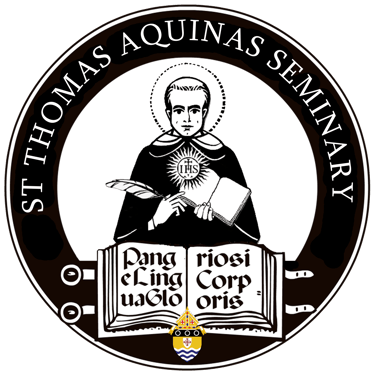Certificate in Catholic Biblical Studies
“Their sacred tradition, therefore, and Sacred Scripture of both the Old and New Testaments are like a mirror in which the pilgrim Church on earth looks at God, from whom she has received everything, until she is brought finally to see Him as He is, face to face.” – Dei Verbum 7
The Certificate in Catholic Biblical Studies provides a comprehensive foundation in the study of Sacred Scripture. With an emphasis on its theological context and the full canon, our programme presents an explicit philosophy of interpretation and a faith-based hermeneutic within the Church. Comprising five courses (15 credits in total), the programme is delivered online and offers the flexibility of both synchronous (live) and asynchronous (self-paced) learning modes.
Required Courses
Introduction to Catholic Biblical Studies
This course is designed to instil essential reading habits and skills for interpreting the Bible, nourishing the spiritual life of both the student and the candidate for ministry. It sets the groundwork for all subsequent Scripture courses by pursuing a proper interpretation of Dei Verbum and fostering a rigorous ecclesial hermeneutic. Students will explore practical building blocks and theoretical principles that underpin a Catholic theological approach to Scripture. Topics include biblical geography, history, languages, narrative structures, the framework of theology, textual and historical criticism, the biblical canon, patristic interpretation, the four senses of Scripture, philosophical hermeneutics, and the interpretation of Dei Verbum.
3 CreditsIntroduction to the Old Testament
This course introduces exegetical methodology and an exploration of Old Testament theology. Students will examine the assumptions and outcomes of exegesis, utilising its various methodologies both as practical tools and as products of their historical context. The course includes an analysis of Hebrew poetry and narrative, ritual and ethical instruction, prophecy, historiography, and novella, all treated as literature. Additionally, the development of traditions within the canon is explored. Given that Sacred Scripture is dual-authored—by both man and God—and is interpreted in the context of the Catholic Church, there is a special emphasis on the theology of the Old Testament, focusing on the People of God and incorporating spiritual readings from the Church Fathers to the present day.
3 CreditsIntroduction to the New Testament
In this course, students are introduced to the literature, history, and theology of the New Testament. Emphasis is placed on key books that focus on Jesus of Nazareth, the four canonical Gospels, and the emergence and development of early Christianity.
3 Credits
Elective Courses
Students are required to choose two elective courses – one focusing on the New Testament and one on the Old Testament. Here are examples of available electives:
Archaeology and the Bible
This course brings together Biblical texts and archaeological evidence from the ancient world. Students will study the methods by which archaeologists interpret artefacts and discuss the influence of the Bible on framing archaeological questions. The course investigates how archaeological discoveries can enrich our understanding of Scripture and considers the impact of modern politics on archaeological debates. Covering a period of over fifteen hundred years—from the Late Bronze Age (1550 BC) to the early Roman period (70 AD)—the course examines subjects such as stratigraphy, ceramic typology, iconography, sacred space, textual materiality, and instances of forgery to build a richer understanding of ancient Israel and early Christianity.
3 CreditsPauline and Deutero-Pauline Writings
This course focuses on the earliest Christian literature, primarily authored by the Apostle Paul. His conversion and mission to the Gentiles helped shape the early Christian community, and his theology forms a cornerstone of early Christian doctrine. Students will study portions of the Acts of the Apostles, all of Paul’s letters, and the pseudepigraphal letters associated with his theological tradition. The course also provides contextual readings that introduce the historical and geographical settings of each letter and explore the corpus's theological significance.
3 Credits
The Certificate in Catholic Biblical Studies at St Thomas Aquinas Seminary is a journey that equips you with the tools necessary for lifelong learning, thoughtful interpretation, and effective ministry. Embrace this opportunity to deepen your faith, enhance your understanding of Sacred Scripture, and contribute meaningfully to the Church’s interpretative tradition.
St Thomas Aquinas Seminary
Online courses for the formation of deacons and priests in the Old Catholic tradition.
© 2025. All rights reserved.
Leadership Team
Rector:
Academic Dean:
Archbishop Chris Oliver OSPH
Archbishop Felix Gibbins OSB Cam


